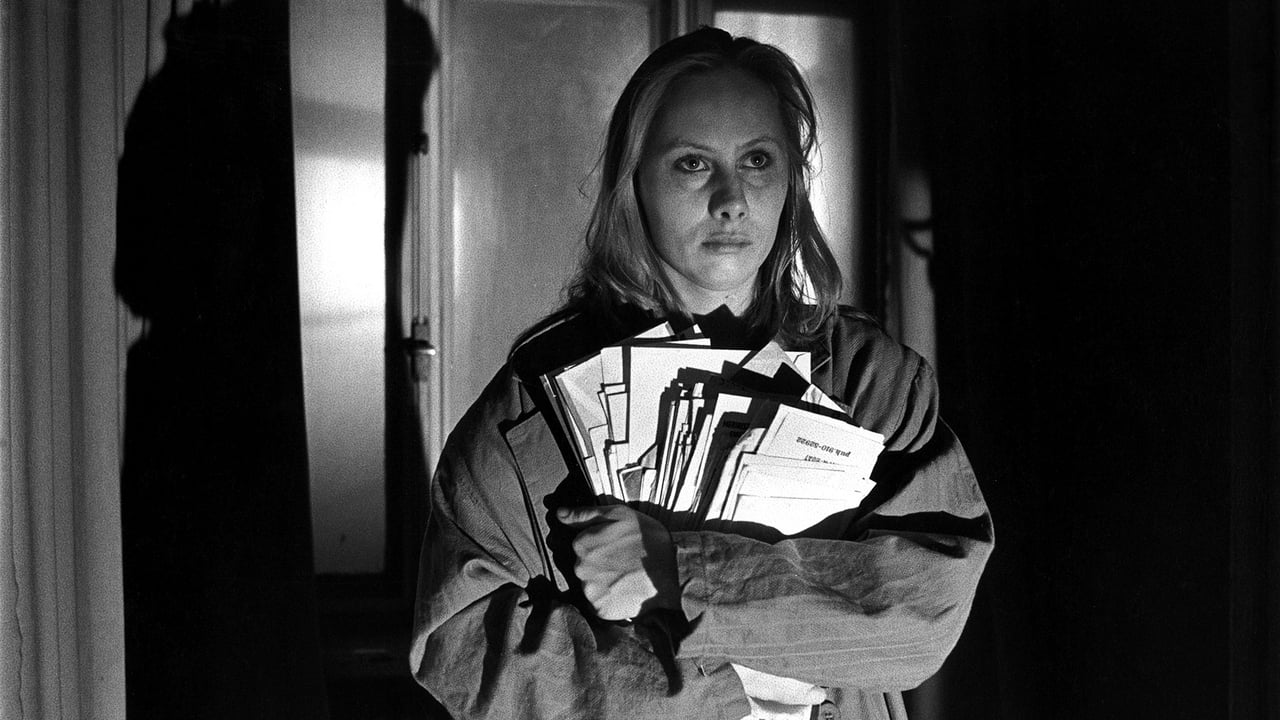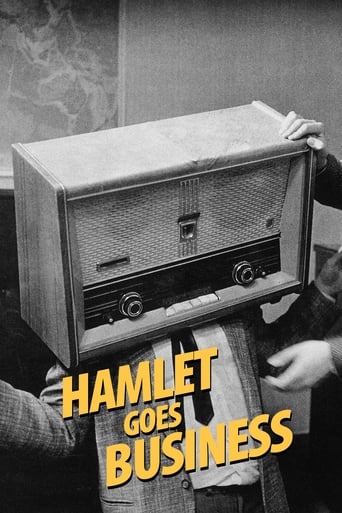

A bit overrated, but still an amazing film
... View MoreInstead, you get a movie that's enjoyable enough, but leaves you feeling like it could have been much, much more.
... View MoreWhile it doesn't offer any answers, it both thrills and makes you think.
... View MoreIf you're interested in the topic at hand, you should just watch it and judge yourself because the reviews have gone very biased by people that didn't even watch it and just hate (or love) the creator. I liked it, it was well written, narrated, and directed and it was about a topic that interests me.
... View MoreI'm always willing to give an off-beat take on Shakespeare a go. This version starts out well enough, perhaps a bit bland, but the black and white works well, and the differences from the original play kept me on my toes, wondering what they would do different; what take on the story they would offer.I was extremely disappointed by the end. What we have here is a work which is tantamount to totally dismissing Shakespeare. All the original characters are corrupt and evil, and the director opts to let two characters of his own invention be the only survivors and heroes. Why, then, do Shakespeare at all? This demonstrates a profound lack of Shakespeare comprehension. The director has the most intelligent play ever written at his fingertips, and all he can think to do with it is dismiss it as an exercise of futile, meaningless corruption? I say again: A huge disappointment.3 out of 10.
... View MoreIt's not that easy to make a Shakespeare adaptation set in our time. There have been successful attempts, such as Baz Luhrmann's Romeo & Juliet, but most modern-day versions of the bard's plays are doomed to oblivion. That's not the case of Hamlet Goes Business, Aki Kaurismäki's film noir take on the classic.Actually, it's more of a black comedy, similarly to Calamari Union (coincidentally, or maybe not, both films were shot in black and white), Kaurismäki's satire on Finnish lowlife. This time, the target is the big industry, within which Hamlet (Pirkka-Pekka Petelius, who also played one of the Franks in Calamari Union) is raised a spoiled brat, spending his days doing mostly nothing, bar flirt with Ofelia (Kati Outinen), whose father (Esko Nikkari) is an important business associate of Hamlet's dad. Then suddenly the situation changes, as the old man is found dead and his brother, Klaus (Esko Salminen) takes over everything, including the marital duties with Hamlet's mother (Elina Salo). Our grief-struck hero is subsequently forced into action after discovering Klaus isn't that innocent: he poisoned his own brother. Hence the inevitable questions: what should Hamlet do? Leave the murderer alone or avenge his father's assassination? In short, to be or not to be?Ironically, we never hear the protagonist say those words, or the rest of the soliloquy, for that matter. Kaurismäki cut the entire speech because according to him it was ridiculous, useless and distracting, a waste of time: Hamlet would be too busy to start reflecting on life's meaning.Apart from that (and a few tweaks at the end), Hamlet Goes Business follows Shakespeare's text very closely, albeit with the satirical tone. In fact, the movie's sole weakness is the fact that it gets a little too overblown and surreal come the conclusion, with set-pieces that are funny, yes, but slightly inappropriate in this kind of film.That said, the film is worth a viewing, if you're open-minded enough. If not, stick with Laurence Olivier or Kenneth Branagh: at least you'll get to hear the famous soliloquy.
... View Morei saw this about a year after it first came out.It has become notorious for being somewhat flippant about it's source material (Shakespeare's Hamlet).Actually, I don't remember finding this very humorous at all. In fact, a darker version of the Hamlet narrative could hardly be imagined.This film represents an important historical turning point; although theatrical directors had been toying with the notion of "updating" Shakespeare, ever since Orson Welles produced a Broadway version of Macbeth with African Americans in the cast back in the late 1930s (When he made his own film version of MacBeth, he chickened out on this, unfortunately). But if the reader has seen the updated version of Romeo and Juliet out of Australia, or the Ethan Hawke Hamlet of 2000, or the recent "O" version of Othello (at last with black actors playing black roles, after all these centuries, for heaven's sake!), it all starts here.Unfortunately, as I say, this film is so incredibly dark, you'll want to know why Hamlet didn't just cut his throat - "To be, or not to be - oh, the hell with it!" Not for every taste, to say the least.
... View MoreWhat are you left with if you take most of the psychological motivations away from characters, and turn a story into a social tract? Shakespeare lovers and those who persist on "character development" better beware, as Kaurismaki (in my fourth incursion into his cinema) transforms the Danish prince into a horny, ruthless and spoiled rich heir, who writes bad poetry, is worried about his weight and has a terrible secret. I admit I don't like William Shakespeare much --I believe he's overrated-- so I rather enjoyed Kaurismaki's "irreverence". It is a hint that he does not even give credit to Shakespeare: this story has been told since late 12th century and apparently Thomas Kyd wrote a "Hamlet", before Shakespeare. Kaurismaki is more interested in speculating what may happen to a family like Hamlet's in contemporary settings that seem peculiarly outdated. The first 70 minutes tell the story we know, with a few licenses that in most cases are funny, or simply reveal how the rich and powerful take ruthless decisions without considering their effects on the people they rule. Kaurismaki builds scenes and sequences using resolute ellipsis, a fixed camera, and alienating and ironic music commentaries. Scenes are often resolved in a single take, and to the point (for example, the only time he sees the ghost of his father, Hamlet asks him to talk fast because he does not want to miss dinner, and Kaurismaki cuts to another scene; also there is no famous soliloquy), which made my somewhat uneasy viewing a fast experience. In an aftermath we have never heard of before, Kaurismaki grabbed my full attention, up to his sarcastic end credits against a montage of a factory while a trite tune of hope fills the soundtrack. I found it far more interesting than Brannagh's and Zeffirelli's films.
... View More